I don’t know about you, but I’ve never been big on poetry. The rhythm and meters necessary to appropriately read poems just bog me down. I love hearing poetry read by someone who understands how it should be enunciated, but when I try to read poetry, either in my head or out loud, I sound like an idiot. Well, with the exception of the poems of Pablo Neruda.
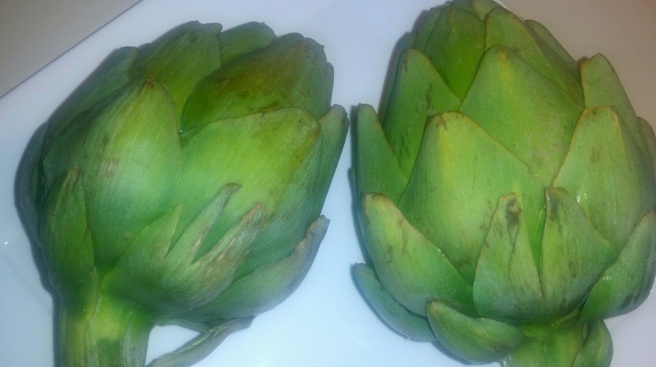
Neruda is my favorite poet in all the world. He writes in a sensual, lyrical rhythm that is a gorgeous combination of the magical realism so common in Latin American writing, and a pure, romantic worldview centered around love. His arguable masterpiece of love poetry is his Twenty Love Poems and a Song of Despair, though I personally love Cien sonetos de amor (100 Love Sonnets). Cien sonetos, in my humble opinion, is probably one of the most beautiful and erotic collections of poetry in the world, mature and beautiful and quite sensual. I highly recommend you read them if you haven’t already.
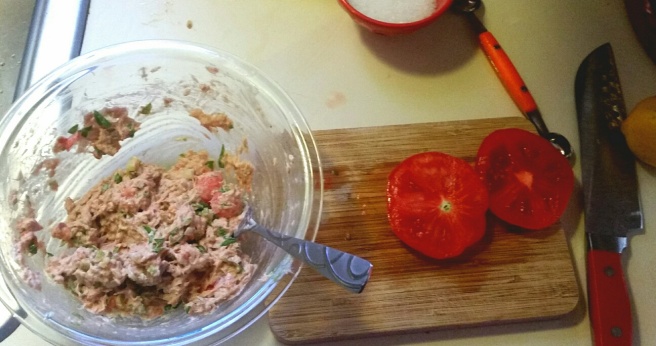
As much a political figure as a poet, Neruda was born Ricardo Eliécer Neftalí Reyes Basoalto in Chile. His poetry was considered beautiful, avant-garde, and at times, very subversive to the repressive government in his home country. Highly respected as both a writer and a political figure, he traveled extensively throughout the world, both as a diplomat and after he was forced into exile by after Chile outlawed Communism. A believer in pure Communist ideals, he was associated such other exalted revolutionaries as Garcia Lorca, Pablo Picasso and Salvador Allende. It is believed he was killed by the Pinochet government, which he had fervently criticized. Proof that words can be as powerful as any other weapon, if used correctly.
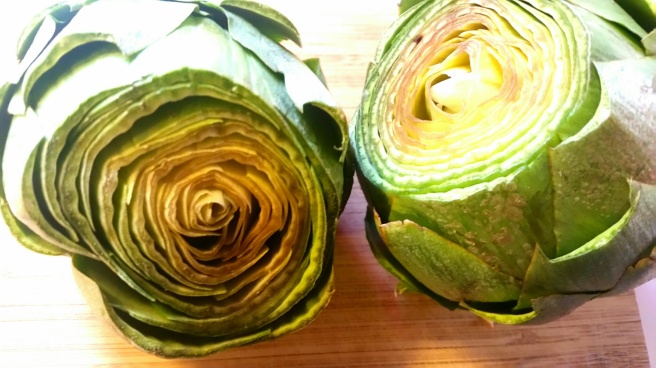
Though I adore Neruda’s love sonnets, the Odes he wrote in homage to everyday, normal items such as food, are my absolute favorites. He wrote odes using these mundane objects as personification of the human experience. Odes to a tuna he saw in the marketplace, golden lemons, pearly onions, jade-green artichokes, ruby and topaz-colored wine, and tomatoes, comparing the crimson flesh of the tomato to the bleeding and suffering of mankind, but also finding the sheer joy in these common foods.
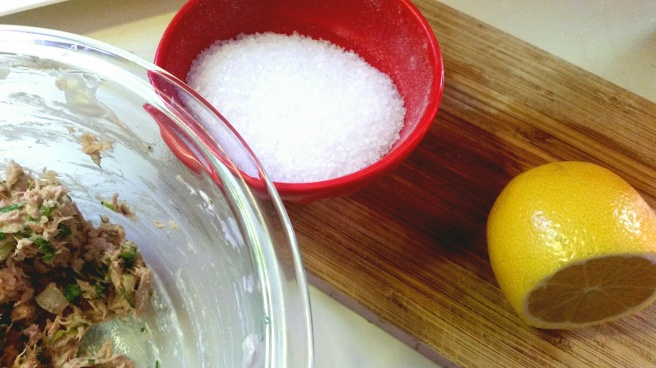
Being both a reader and an avid cook, I’ve always found his odes to food so filled with pleasure and sensuality. It’s interesting that Neruda is as comfortable detailing his political beliefs in a logical manner as he is describing the eroticism of kissing his lover or the joys of drinking wine or eating a tomato.
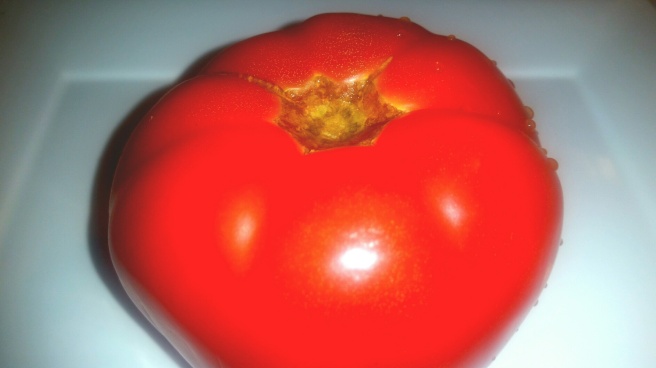
filled with tomatoes,
midday,
summer,
light is halved like
a
tomato,
its juice runs
through the streets.
In December,
unabated,
the tomato
invades
the kitchen,
it enters at lunchtime,
takes
its ease
on countertops,
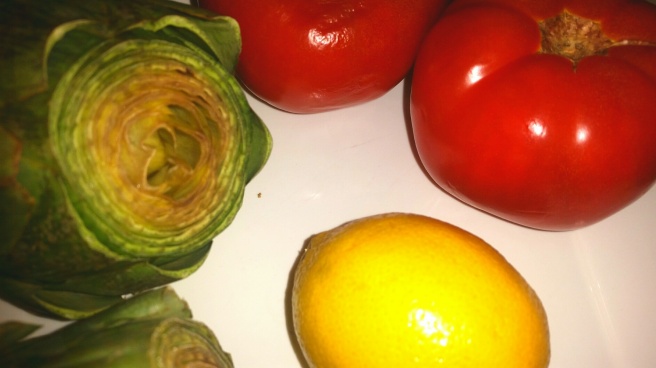
butter dishes,
blue saltcellars.
It sheds
its own light,
benign majesty.
Unfortunately, we must
murder it:
the knife
sinks
into living flesh,
red
viscera
a cool
sun,
profound,
inexhaustible,
populates the salads
of Chile,
happily, it is wed
to the clear onion,
and to celebrate the union
we
pour
oil,
essential
child of the olive,
onto its halved hemispheres,
pepper
adds
its fragrance,
salt, its magnetism;
it is the wedding of the day,
parsley hoists its flag,
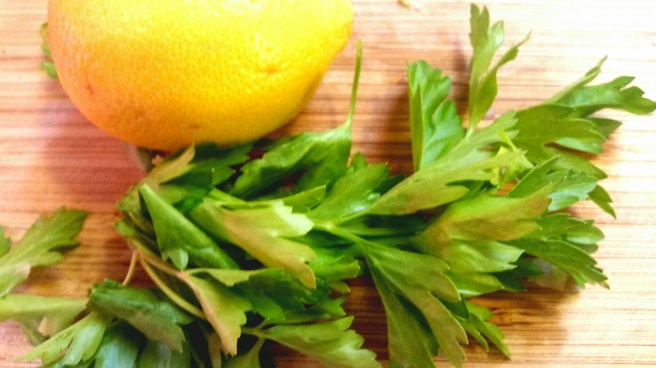
potatoes bubble vigorously,
the aroma
of the roast
knocks at the door,
it’s time!
come on!
and, on
the table, at the midpoint
of summer,
the tomato,
star of earth, recurrent and fertile star,
displays
its convolutions,
its canals,
its remarkable amplitude
and abundance,
no pit,
no husk,
no leaves or thorns,
the tomato offers
its gift
of fiery color
and cool completeness.
Isn’t that just beautiful? In honor of this magnificent poet, I decided to create an homage meal that incorporated tuna, onion, lemon, tomatoes, artichoke, and of course, wine. This is the method that worked for me, based on this marvelous recipe from Beauty and the Foodie, creating tuna-stuffed tomatoes alongside lemon-steamed artichokes and a beautiful, garnet-hued Chilean wine. I do think Neruda would approve wholeheartedly of this meal created in his honor.
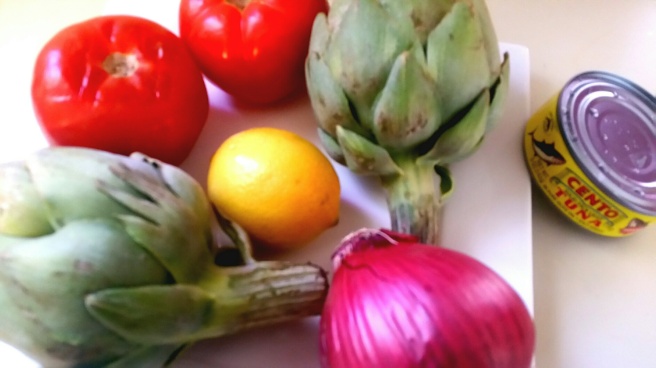
1/2 celery rib, finely minced
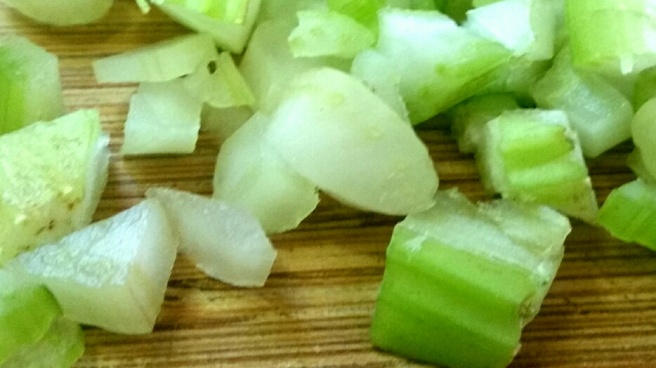
1 tablespoon Dijon mustard
1 tablespoon lemon juice
Salt and pepper
2 slices cheddar cheese
Pre-heat your oven to 400F and spray a baking sheet with olive oil spray. While the oven heats, saute the diced onion in a bit of olive oil and salt, just until it’s translucent.
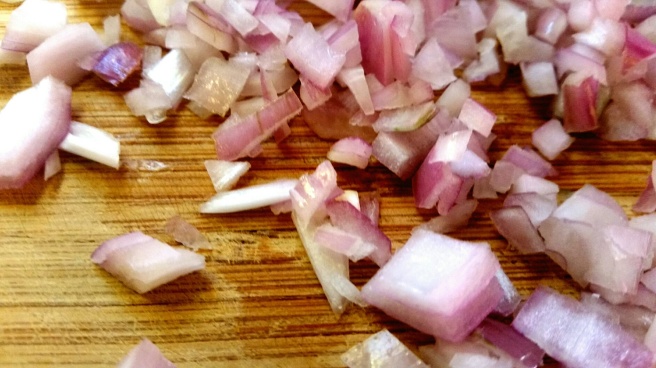
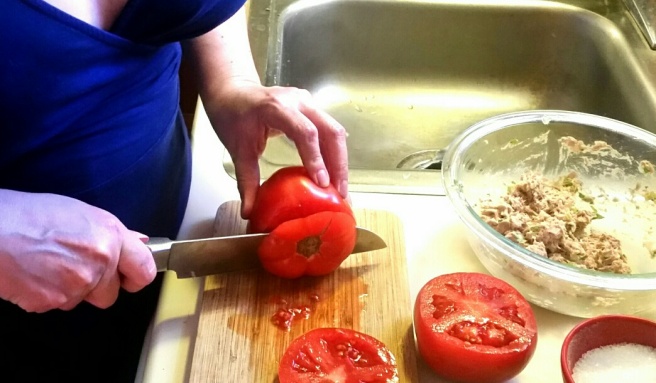
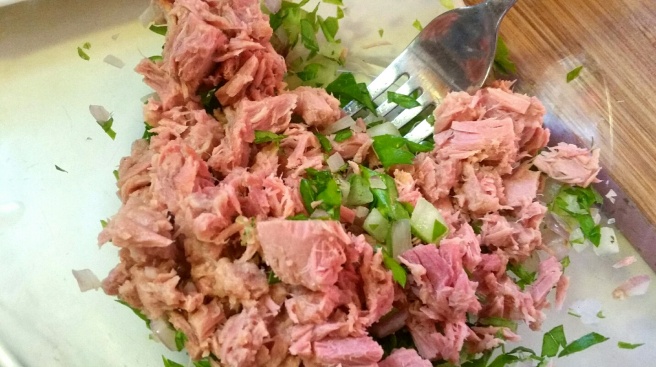
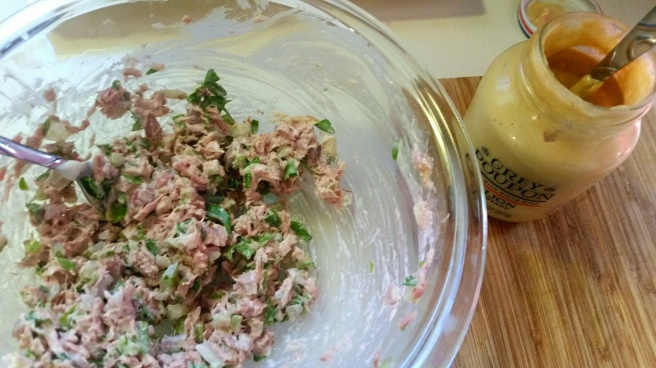
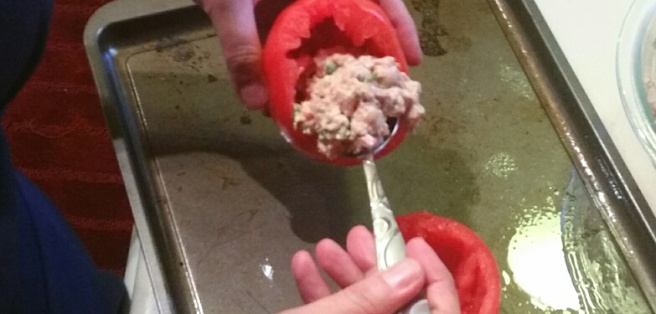
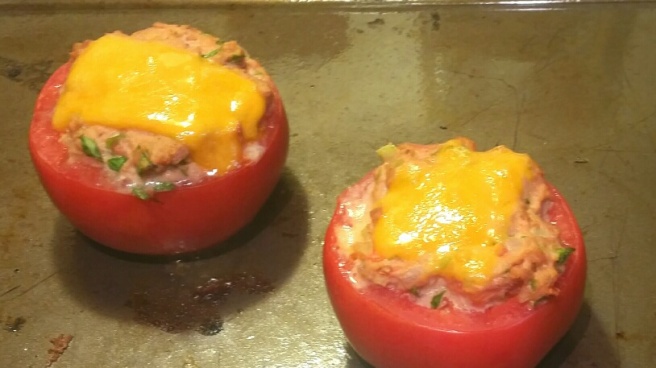
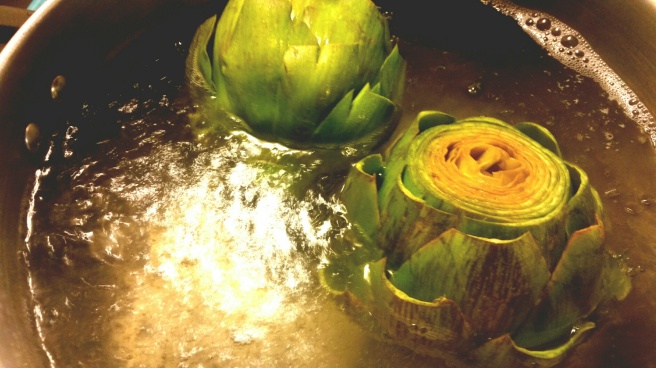
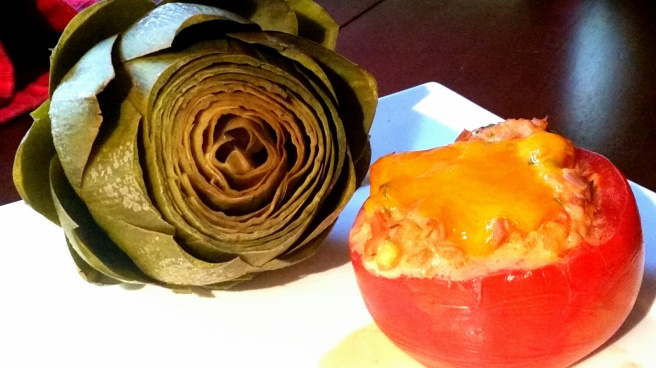

Simply delicious, both the words and the dish 🙂
LikeLiked by 1 person
I really appreciate that! Thank you so much. 🍅
LikeLiked by 1 person
A true “Ode” to my most favorite summer snack….Thank you on so many levels!
LikeLiked by 1 person
Thank you!
LikeLiked by 1 person
That really is a beautiful poem! Right now my life is FULL of tomatoes as I can the garden for winter. Interesting the way he uses the word ‘murder’ to describe what we do to their appearance, because that’s exactly what it seems when crushing or cutting them up. I’m going to have to look for this book. Thanks for sharing! ❤
LikeLiked by 1 person
Yes, the way Neruda personifies so much of his food is really fascinating in his poetry. Just one of the many reasons I love him. And I thought with the bumper crop of tomatoes we have now, this was particularly appropriate. Glad you enjoyed it!
LikeLiked by 1 person
…now, for the obvious, I really do have to google ‘ode to a tuna’. Which could be rather…. flavorful. And the combo, though for the artichoke it’s a bit early… (for the chile… man, that was one of the too many lowest points in our history. It’s maddening the madness, and still today Chile is used as poster child for neolib. policy by those who are trying to apply it to the whole of the world. PN today… might be… a what? A you-tubing lingual acrobat, mixing forms….)
LikeLiked by 1 person
I think I have a link inside of my blog post to that particular poem is well. You may want to take a look and see if you can find it. That’s another one that I always enjoyed although I have to say my absolute favorite is his Ode to Wine. It’s beautiful and lyrical and very sensual.
LikeLiked by 1 person
Beautiful poem and those stuffed tomatoes are making me drool!
LikeLiked by 1 person
Thank you! Yes, Neruda is an amazing poet and about the only poetry that doesn’t make me want to tear out my hair. 🙂 And the tuna-stuffed tomatoes are sooooooo good, in my humble estimation. 🙂
LikeLiked by 1 person
looks amazing and thank you for introducing me to a “new” poet! 🙂
LikeLiked by 1 person
Thank you so much! Yes I absolutely adore his work. He’s pretty much the only poet I can stand. 😄
LikeLiked by 1 person
🙂 going to be checking him out!
LikeLiked by 1 person
I really think you will enjoy his work. He writes so lyrically and romantically, but with an underside of darkness. And of course, his food poems are a dream for foodies like me!
LikeLiked by 1 person
thank you so very much!
LikeLiked by 1 person
Oh! Those tomatoes look so good – are they homegrown? I ADORE Pablo Neruda. This posts makes me wonder if you are familiar with Isabel Allende’s Aphrodite A Memoir of the Senses? You may like it.
LikeLiked by 1 person
Thank you! No, not homegrown. I got them at a local farmer’s market and they were very tasty and ripe. I love Isabel Allende, too. Aphrodite was a favorite book of mine, and in fact, it’s likely going to be featured on an upcoming blog post, so stay tuned! Thanks for the support! Much appreciated.
LikeLiked by 1 person
This is so fabulous!!!!
LikeLiked by 1 person
Awww, thank you! It’s definitely a favorite of mine, too.
LikeLiked by 1 person
Your work has made Neruda’s poem even more beautiful. Thanks for sharing great insights about the poet.
LikeLiked by 1 person
Thank you so much!
LikeLike
You combine so nicely literature with cooking, being an avid reader, and an amateur but skillful cook make me appreciate your blog the more. 🙂
LikeLiked by 1 person
Thank you so much for that lovely comment. I greatly appreciate it!
LikeLike
i don’t know a lot of Neruda but i think i’ve enjoyed everything of his that i’ve read. and this one is no exception. delightful. and the tomato and artichoke look like a very happy coupling. looks yummy!
LikeLiked by 1 person
Thank you, Rottingkins! If you get a chance to read more of his poems, I highly recommend them. He was quite a writer. And thank you for commenting on the tomatoes and artichokes as well.
LikeLike
Beautiful poem and great food. I cooked stuffed tomatoes for a romantic evening, and poems created a mood )) Thank you.
LikeLiked by 1 person
Thanks, Beth! Very happy you enjoyed it.
LikeLike
I have enjoyed plenty of your previous posts but this is my favorite thus far. I’ve been reading Pablo Neruda’s work & am such a fan of his word craftsmanship. He and Maya Angelou have resurged my passion for poetry. Also, I have tried stuffed peppers and stuffed tomatoes but haven’t tried them with tuna but it looks delicious. Wonderful job here! 💖
LikeLiked by 1 person
Thank you, Rabia! This one was special to me as well. The tomatoes really did come out delicious and the best part about them is that they can even be made in the summer cold and not baked with cheese on top. So they are seasonal all year round. So glad you enjoyed it and thanks for all the support.
LikeLiked by 1 person
Ooh sounds great! Always happy to support a friend 🙂
LikeLiked by 1 person
Love the poem! Never thought about stuffed tomatoes, might have to give them a try 🙂
LikeLiked by 1 person
Thanks, Rachel! The tomatoes were wonderful, and can be made cold in the summer, too.
LikeLike
I love this recipe Vanessa, I love the tuna stuffed tomatoes with grilled cheese. It reminds me of “tuna melt” but much healthier.
LikeLiked by 1 person
Thank you so much! The tomatoes were wonderful, and even better, can be served cold on the summer. So glad you enjoyed the post. I truly enjoyed this one too, for a number of reasons.
LikeLiked by 1 person
Yummy, I’m going to make them for sure. Have a great week.
LikeLiked by 1 person
Love it! Thank you so much for this wonderful introduction! I do like poetry; and especially right now, with the Burns Supper season coming up (Robert Burns, Scotland’s national bard, born 25th Jan 1758 or thereabouts, and celebrated lavishly every year). I haven’t read much Neruda but I’m about to purchase these very poems, the tomato one is fabulous. I’ll maybe post about Burns’ ‘Address to the Haggis’ in due course, and refer back to Neruda and his tomatoes! Very inspiring. Have a great week.
LikeLiked by 1 person
How wonderful that it is Wee Bobby Burns’ birthday coming up soon. I’d love to read his own ode to haggis. Seems these poets are also secret foodies, as well. Cheers!
LikeLike
A true visual poetry Vanessa. Love the way you combine food, poetry and literature😍😍
LikeLiked by 1 person
Thank you so much for your kind words, Sumith!
LikeLiked by 1 person